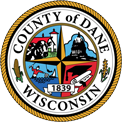
Dane County Emergency Management assists local governments, schools, businesses and non-profits, and citizens in developing their own emergency plans. Preparedness is a continuum. Dane County Emergency Management works to support the forward movement of the whole community along the preparedness continuum.
If you’re a citizen looking to develop an emergency plan, Ready.Gov and ReadyWisconsin have excellent resources for you to develop a plan, make a kit, and stay informed. Dane County Emergency Management also has additional resources for you below.
If you’re a part of a local government, school, business, or non-profit and are interested in how Emergency Management can assist your organization, read about our Preparedness Services and contact us.

All Wisconsin cities, villages, and towns are required to adopt an emergency plan and designate an emergency manager [WI § 323.14(1)3.(b)]. The municipal emergency manager is responsible for directing local training and emergency management programs and exercises, directing participation in emergency management programs and exercises, advising county emergency management on local emergency management programs, and submitting to county emergency management any reports they require [WI § 323.15(1)(c)].
Dane County Emergency Management assists local governments to develop emergency plans. Dane County Emergency Management has developed a Handbook for Local Emergency Managers as an overview to emergency management practices, roles and responsibilities, and resources. If your city, village, or town needs assistance with its emergency plan, please contact us.
The Southwest Incident Management Team (SWIMT) consists of personnel trained and equipped to provide support to the local incident command. Members typically have experience in public safety and emergency response. Learn more about the SWIMT and how to apply here.
Schools are cornerstones of our communities. They educate, feed, and protect our children; lead and support community activities; and many serve as emergency shelters. In planning for emergencies, schools face unique challenges. Emergencies at schools can devastate a community.
Dane County Emergency Management works with school districts assisting them with their responsibilities to develop planning strategies, connect school districts with local first response agencies, and develop exercises to test school emergency plans.
Businesses and Non-Profit organizations play a critical role supporting citizen’s safety and recovery. From providing immediate feeding and sheltering assistance to supporting community recovery efforts, Dane County needs the private sector to prepare, respond, and recover from emergencies.
Businesses and Non-Profit organizations need to take purposeful steps to plan for emergencies. These plans should include procedures for responding to emergencies as well as maintaining operations throughout the emergency (Continuity of Operations Plans – COOP).
From severe weather awareness to connecting agencies with the appropriate response agencies to discussing planning strategies, Dane County Emergency Management can support private sector planning efforts to build resilience. Please contact us to learn more.
We are aware the Centers for Medicare / Medicaid have special requirements for health care facilities to participate in emergency-based exercises with local response agencies. Please see the Testing Emergency Plans/Exercising page for more information.
Make a plan. Disasters can happen any time and any place. When a disaster strikes you may have only a short time to respond. An accidental release of a hazardous chemical could mean a need for sheltering-in-place or an immediate evacuation. A winter storm could confine your family to your home. A flood or tornado could cut off basic services in the community; things like gas, water, and electricity for days. The effects of a disaster can be sudden and devastating. Planning ahead will lessen the consequences for you and your family if a disaster were to occur and will allow you to respond quickly.
To make a plan, focus on satisfying your household’s needs rather than preparing for a particular hazard. In an emergency situation, there are no guarantees as to what services and facilities will be available. You will always need to eat, to drink, shelter from the elements, and communicate with loved ones. Preparation involves:
To help you prepare a plan, Dane County Emergency Management has developed a Household Emergency Plan Template. This template is intended to guide your through your own emergency planning process. It provides a format and suggests procedures you might need in an emergency. Please modify it to meet your specific needs.
How can I make a good plan?